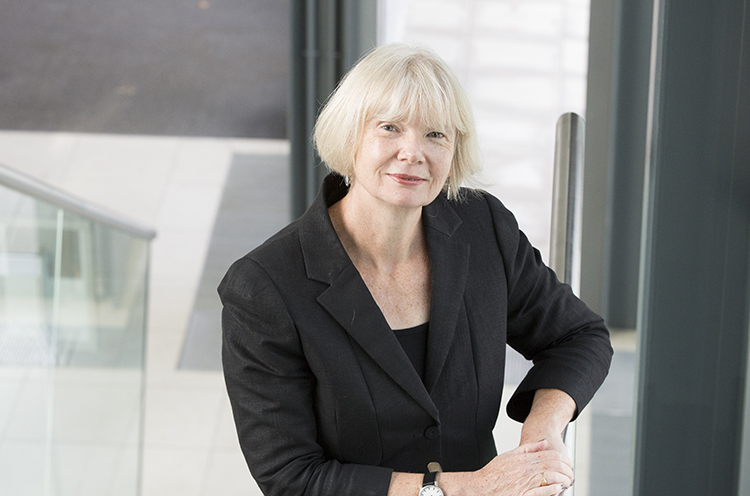I love Welcome Week, and it is fast approaching – which makes it a great time to reflect on progress in Education and Student Experience, as well as looking forward to plans for the new academic year.
This portfolio is framed by the first education and student experience strategy to be co-produced with Kent Union, mapping onto the Kent Union education strategy. The newly refreshed strategy retains its five main themes:
- Enhancing and recognising excellence in education
- Embedding and sharing good practice to improve the consistency of student and academic experience
- Student engagement
- Modern curriculum with modern delivery
- Student life.
During the lifetime of this strategy, there have been some notable achievements including our TEF Gold in 2016-2017 and the THE 2018 Outstanding Student Support Award for the OPERA project (building upon the 2017 award for the Student Success project). The Centre for Higher and Degree Apprenticeships has been launched and the number of HDA programmes continues to grow (though it could grow faster! – contact Professor Scott Wildman if you want to make this happen). Student engagement with our MOOCs reached 86,000 (which is a genuinely fabulous number). The Teaching Enhancement Small Support Awards (TESSA) scheme was launched in 2017-2018 with nearly 50 successful applications already. We have seen a rise in staff achieving Advance HE-accreditation from 31.9% of academic staff in 2016 to 68.9% in 2018, with a particular increase in Senior Fellowships. We have also begun to increase successful teaching and scholarship professorship promotions and have held the first joint celebration of teaching, research and innovation awards.
These developments enhance the excellence of our education and student experience, and how we support, value and reward our academic and professional services colleagues. We have developed a range of initiatives which are directed at supporting both students and staff – a small selection includes the Kent Graduate Attributes, a Framework for Powerful Learning Experiences, Kent Inclusive Practices, the Programme Approval and Curriculum Design Project, roll-out and further implementation of Lecture Capture, and piloting of Enhancement Weeks in response to student feedback, the Hello Kent campaign, the Route to Recognition for Experienced Staff and the Academic Career Map (ACM). And they’re not separate – not just a series of ‘another new thing’ – because sharing the learning from these initiatives develops Kent communities of practice. Alongside numerous working groups (you cannot beat a good working group in my view), there have also been annual learning and teaching conferences, a Festival of Projects and a TESSA and Technology showcase as well as regular networks which contribute to strategy delivery and help us feel we’re working together.
To deliver the strategy, and with a close eye on NSS improvement and our next TEF submissions, we have identified a number of themes for the coming year.
The first strategic priority is student engagement, community and communications. Creating a sense of belonging for our students is vital to student success and academic achievement. Student feedback and our NSS results prompt us to concentrate on this area. And Schools agree, because two corresponding institutional NSS quality enhancement themes of student communications and ‘closing the loop’; and school identity and a sense of learning community, were among the top priorities selected over the summer in NSS 2019 action planning.
This theme also coheres with support for different student groups in order to address retention and attainment gaps. Kent students are 36% BAME, 42% WP, 20% with a disability, 20% commute (43% at Medway), and increasing percentages arrive with BTECs, and are first in their family to go to University. Please let’s not ever forget that this is absolutely brilliant! However, once they arrive, we need to ensure that all our activities and services best support, fully engage and address the needs of our more demographically diverse student body, so students gain confidence, continue and succeed. A new working group will be reviewing support for Part-time, Mature, and Commuting students, and students with Caring responsibilities (PMCC).
Tailoring student engagement and support has also featured heavily in the Welcome, Induction and Transition Group (WIT to its friends). The focus here is how best to strengthen, develop, align and co-ordinate all induction, transitions and welcome week activities – another of our NSS quality enhancement themes. WIT has initially created a unified and co-ordinated Hello Kent campaign and an induction and transitions checklist, and plans a template for welcome week 2020, and will develop and monitor Enhancement Weeks.
We are developing a University evaluation framework for education and student experience, to enable us to demonstrate the impact of our projects and policies (this very helpfully speaks directly to the TEF focus on impact). We will also continue to prioritise our focus on developing our accessibility journey, for instance through Blackboard Ally and OPERA – something which Kent has become well known for across the sector.
Our other priorities are focused on a number of key areas related specifically to enhancing excellence in education and modern delivery of a modern and appealing curriculum. These include:
- Review of portfolio – sustainability of modules and programmes; student choice
- Teaching quality, innovation, facilities, and diversity of delivery methods
- Assessment: over-assessment, winter assessments and programme level assessment, and contract cheating
- Timetabling: strategy, policy and construction including potential for block timetabling
- Year In… options, other four-year opportunities.
As you will have guessed, we have a series of new working groups picking up these themes in the coming year, and if you are interested in any of them, please get in touch with Melissa Mulhall. Many, many thanks to all the colleagues and students, who have been so active in these areas, and who are already involved in supporting the next stages of our strategy. Your contributions mean that while I may be off to the University of Manchester in October, this agenda isn’t going anywhere except forward at speed!
Professor April McMahon, Deputy Vice-Chancellor Education

